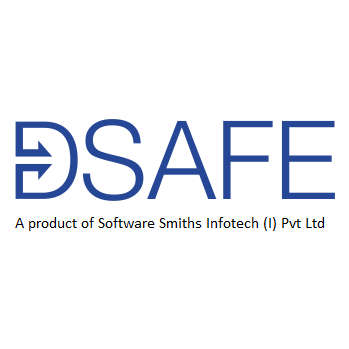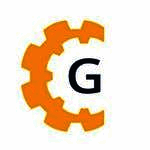Description

Dell Avamar

DSafe
Comprehensive Overview: Dell Avamar vs DSafe
Sure! Dell Avamar and DSafe are both data protection solutions, but they serve different primary functions and target markets, and they have distinct features and competitive positions in the market.
a) Primary Functions and Target Markets
Dell Avamar:
- Primary Functions: Dell Avamar is designed for backup and recovery solutions. It offers features like global client-side data deduplication, which reduces the amount of data transferred and stored, thereby minimizing backup times. Avamar supports both virtual and physical environments and provides capabilities for ransomware protection, secure backup storage, and efficient data recovery.
- Target Markets: Avamar is targeted towards medium to large enterprises that require scalable, robust data protection solutions. Its capabilities are well-suited for organizations with complex IT environments, including those with a mix of on-premises and cloud resources.
DSafe:
- Primary Functions: As of the last update, DSafe isn't a widely recognized standalone product in the data protection space under that specific name. It might refer to a proprietary solution or a niche product tailored for specific industries. However, generally speaking, products labeled with "Safe" are often focused on data encryption and cybersecurity, emphasizing the safety aspect of data handling.
- Target Markets: If DSafe is assumed to be a niche or specialized solution, its target market would likely be organizations with specific compliance or data protection needs, potentially smaller businesses or particular industries like healthcare or finance where custom solutions are required.
b) Market Share and User Base
Dell Avamar:
- Dell Avamar holds a significant position in the enterprise backup and recovery market, being part of Dell Technologies' comprehensive data protection suite. It's widely adopted by enterprises seeking reliable and efficient data protection solutions. Avamar's market share is supported by its integration with other Dell EMC products and its reputation for robustness and performance in larger, more complex IT environments.
DSafe:
- As DSafe is not a widely recognized product in the general market (as per major industry analyses or reports), it's hard to pinpoint its market share or user base without further context. It likely serves a more niche or region-specific market, with a smaller, more targeted user base if it exists as a separate solution.
c) Key Differentiating Factors
Differentiating Factors for Dell Avamar:
- Deduplication Technology: Avamar's client-side deduplication is a standout feature that reduces storage and bandwidth usage, which is critical for enterprises managing large volumes of data.
- Integration: Seamless integration with other Dell EMC hardware and software solutions provides a unified experience for users within the same ecosystem.
- Scalability and Versatility: Its ability to scale for large enterprises and adapt to various environments (both virtual and physical) makes it versatile across different industries.
Differentiating Factors for DSafe:
- Without specific details on DSafe, general assumptions can be made: if it focuses on data encryption or specific safety protocols, its differentiation would likely revolve around specialized compliance features or enhanced security measures that cater to specific industry requirements.
- Customization: If it’s a niche product, DSafe might offer more customizable solutions tailored to the unique needs of smaller or specialized industries.
In summary, Dell Avamar is a recognized player in the enterprise data protection space, particularly for large organizations, while DSafe appears to be more niche or less documented in mainstream analyses. Avamar's global deduplication and integration capabilities are strong advantages, whereas DSafe, if focused on security, might have differentiators in compliance or data safety for specific sectors.
Contact Info

Year founded :
Not Available
Not Available
Not Available
Not Available
Not Available

Year founded :
2010
Not Available
Not Available
Israel
http://www.linkedin.com/company/dsafe1
Feature Similarity Breakdown: Dell Avamar, DSafe
To provide a feature similarity breakdown for Dell Avamar and DSafe, let's explore the three areas you've outlined: core features, user interfaces, and unique features.
a) Core Features in Common
Both Dell Avamar and DSafe are data protection solutions that focus primarily on backup and recovery. Here are some core features they typically share:
-
Data Deduplication: Both solutions use deduplication techniques to reduce the storage requirements for backups, ensuring efficient use of resources and faster backup windows.
-
Backup and Recovery: They offer comprehensive backup and recovery capabilities, supporting various data types, including virtual, physical, and cloud environments.
-
Data Encryption: To ensure the security of data, both products provide encryption mechanisms both at rest and in transit.
-
Scalability: Both solutions are designed to scale according to the needs of growing organizations, handling small to large-scale data environments.
-
Support for Multiple Platforms: Dell Avamar and DSafe support various operating systems and applications, providing flexibility for diverse IT infrastructures.
-
Reporting and Analytics: They offer basic to advanced reporting and analytics features to monitor backup operations and resource usage.
b) User Interface Comparison
While both Dell Avamar and DSafe offer user interfaces designed to facilitate data management, they could differ in terms of usability and design:
-
Dell Avamar: Known for its user-friendly interface, Dell Avamar typically provides a centralized management console with intuitive navigation and controls. It often integrates with other Dell EMC solutions, offering streamlined workflows for users familiar with EMC's ecosystem.
-
DSafe: As a competitive solution, DSafe also emphasizes ease of use, often providing a web-based interface that is easy to navigate. Its simplicity might cater well to users seeking minimalistic yet effective control over their backup operations.
Depending on the evolution of their platforms, the specifics can vary, and user preference for an interface could be subjective based on the particular requirements and familiarity of the users.
c) Unique Features
Unique features are where these products might differentiate themselves in the market:
-
Dell Avamar:
- Integrated with EMC Storage Products: Offers strong integration with other EMC solutions, which can provide a seamless experience for users in EMC-heavy environments.
- Global Deduplication: Advanced deduplication features that operate globally across all backups, not just on individual sets.
-
DSafe:
- Custom Policy Management: May offer advanced customization in backup policies and schedules, providing more granular control over backup strategies.
- Additional Data Recovery Options: Could provide unique recovery options, such as granular, file-level recovery, or virtual machine-specific features, depending on the product's focus.
These breakdowns are based on common features seen within the industry. For the most accurate and up-to-date comparisons, consulting detailed product documentation or reviews would be beneficial, especially as features evolve over time.
Features

Not Available

Not Available
Best Fit Use Cases: Dell Avamar, DSafe
Dell Avamar and DSafe cater to different needs in the realm of data protection, and their suitability can vary based on business requirements, industry verticals, and company sizes.
Dell Avamar
a) Best Fit Use Cases
-
Medium to Large Enterprises: Avamar is ideal for medium to large enterprises with complex IT environments requiring efficient backup and recovery solutions. Its deduplication capabilities reduce storage needs and bandwidth requirements.
-
Organizations with Remote Offices: Companies with remote or branch offices can significantly benefit from Avamar due to its efficient WAN optimization and capability to perform backups over limited bandwidth.
-
Virtualized Environments: Businesses employing substantial virtualization technologies, like VMware or Hyper-V, would benefit from Avamar’s integration capabilities, providing simplified backup processes and improved recovery times.
-
Data Centers with High Volume Backups: It suits businesses with high-volume data centers where performance and speed are critical, thanks to its client-side deduplication approach, which minimizes the amount of data that needs to travel across networks.
-
Regulated Industries: Companies in financial services, healthcare, or government sectors can leverage Avamar’s robust security and compliance features, ensuring data integrity and easy auditability.
DSafe
b) Preferred Scenarios
-
Small to Medium-Sized Businesses (SMBs): DSafe is more suited for SMBs that need a cost-effective and simpler backup solution without the complexities associated with larger scale systems like Avamar.
-
Projects with Limited IT Support: It is ideal for scenarios where businesses do not have a comprehensive IT department, as DSafe solutions typically offer user-friendly interfaces and straightforward deployment.
-
Endpoint or Mobile Device Data Protection: DSafe is designed to work efficiently on endpoints or mobile devices, which makes it suitable for businesses prioritizing these areas for data protection.
-
Environments Prioritizing Simplicity and Ease of Use: For businesses that require a straightforward backup solution with minimal configuration, DSafe is the preferred option.
Industry Verticals and Company Sizes
Dell Avamar
- Industry Verticals: Highly regulated industries like healthcare, finance, and government sectors benefit from Avamar's robust compliance and security features.
- Company Sizes: Typically, Avamar is suited for larger organizations requiring advanced features like deduplication, integration, and high performance under large-scale operations.
DSafe
- Industry Verticals: It serves general business sectors that may not have stringent regulatory requirements but need adequate data protection.
- Company Sizes: Best fits small to medium-sized businesses that need essential backup solutions with minimal configuration and management overhead.
In summary, Dell Avamar is a better choice for more extensive, complex environments with varying data protection needs, whereas DSafe addresses more straightforward scenarios that prioritize ease of use and affordability.
Pricing

Pricing Not Available

Pricing Not Available
Metrics History
Metrics History
Comparing undefined across companies
Conclusion & Final Verdict: Dell Avamar vs DSafe
Conclusion and Final Verdict for Dell Avamar vs. DSafe
a) Best Overall Value:
Determining the best overall value between Dell Avamar and DSafe depends largely on the specific needs and context of the user. Dell Avamar is known for its data deduplication capabilities, scalability, and integration with other Dell EMC products, making it highly suitable for enterprise environments that require comprehensive and robust data protection solutions. On the other hand, DSafe may offer a competitive edge for smaller businesses or specific use-cases due to its potentially lower cost and ease of deployment.
If enterprise-grade features, scalability, and integration are crucial, Dell Avamar may offer the best overall value. However, if cost-effectiveness and simplified deployment are more significant, and the organization does not require all of Avamar's advanced features, DSafe could be the better option.
b) Pros and Cons:
Dell Avamar:
Pros:
- Advanced Deduplication: Avamar’s data deduplication capabilities reduce storage needs and bandwidth usage.
- Scalability: It offers robust scalability, accommodating growing data needs over time.
- Integration: Seamless integration with other Dell EMC products and services.
- Security: Strong encryption features for data at rest and in transit.
- VMware Integration: Excellent support and optimization for VMware environments.
Cons:
- Cost: Generally more expensive, which might be prohibitive for smaller organizations.
- Complexity: Set-up and management can be complex, requiring specialized knowledge and training.
- Resource Intensive: Can be resource-heavy, necessitating robust infrastructure.
DSafe:
Pros:
- Cost-Effective: Typically more affordable and may offer flexible pricing models.
- Ease of Use: Simplified interface and setup, requiring less specialized knowledge.
- Focus on Small to Medium Businesses: Tailored features that cater well to smaller enterprises or specific niches.
Cons:
- Limited Scalability: May not scale as efficiently as Avamar for very large enterprises.
- Feature Set: Could lack some of the advanced features and integrations present in enterprise-grade solutions like Avamar.
- Vendor Support: Support and updates might not be as extensive compared to well-established options like Dell Avamar.
c) Recommendations:
-
For Large Enterprises: Dell Avamar is recommended due to its robust feature set, scalability, and comprehensive support. It fits well in IT environments where data security, advanced features, and enterprise-grade integration are priorities.
-
For Small to Medium Businesses: Consider DSafe if budget constraints are significant and if your needs are centered around ease of use and straightforward deployment. Evaluate the specific requirements and ensure that DSafe’s feature set aligns with your organizational needs.
-
For Users with Variable Needs: Assess the primary data protection challenges your organization faces. If advanced deduplication, extensive support for virtualization, and future scalability are less critical, DSafe might offer a pragmatic balance between functionality and cost. However, for those anticipating future growth or needing deep integration with existing Dell EMC ecosystems, Dell Avamar might be a worthy investment despite the higher upfront costs.
Ultimately, the decision should hinge on aligning product capabilities with the strategic IT objectives and operational scale of the organization. Conducting a thorough needs analysis and potentially piloting both solutions can provide practical insights that aid in making a well-informed choice.
Add to compare
Add similar companies




